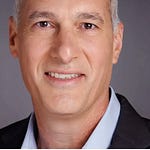Welcome to the 98 new subscribers who have joined since the last edition! If you’re reading this and haven’t subscribed, you can join a high-value community of 1,227 climatetech entrepreneurs, investors, and industry leaders by signing up below.
Here’s how The Green Techpreneur can help you:
For entrepreneurs:
2-4 times a month I interview extraordinary climatetech entrepreneurs and investors and share insight on how to build your business and find funding. It’s insightful, actionable and fun to read or listen to.
For climatetech investors:
The Green Techpreneur publishes lists of pre-vetted startups seeking investment.
For job seekers:
We post climatetech job ads:
Climate fintech startup Earthbanc is hiring a Marketing Communications Manager.
“We're looking for someone to be an essential support to the Executive team and a trusted go-to colleague to help us get things done in marketing, sales, communications, brand building and strategic project management to improve our products from user feedback.”
Sometimes a random encounter is all it takes to change the course of your life. This was certainly true for Uruguayan Santiago de los Reyes and Chilean Danilo Perez who met at a Latin American community networking event in New Zealand.
The two hit it off and together with mechanical engineer Freddy Gonzalez they started working together to bring Danilo’s innovation in energy-efficiency to market.
After years of painstaking research, Danilo had successfully turned his idea into a patented technology that makes anaerobic digestion and fermentation processes more efficient and faster to deliver, ultimately offering better quality renewable biogas energy at lower cost.
Vertus Energy technology unlocks an extra 60% energy from the same waste, and it does it three times faster than the current processes in place, reducing all ongoing costs while increasing both the quantity and quality of biogas processed.
Benjamin Howard later joined the co-founding team, bringing expertise in commercial construction and a plan to help bring Vertus Energy technology to the UK.
“We all converge here in New Zealand as four migrants trying to do some good for the world. We got on pretty well and all have the mindset that we have to do something. It’s not an option to not do anything about the current energy situation that we live in,” says Santiago.
“Essentially, what we are trying to do is to develop a biological platform to make renewable gas more affordable and achievable in this energy transition era.
And with rising energy costs placing increasing financial pressure on consumers and businesses and the REPowerEU strategy aimed at reducing Russian gas imports significantly in 2022 and weaning Europe completely off of Russian energy by 2030 – the pressure is on to fuel the energy transition. Vertus Energy is ready to rise to the occasion.
What impact does your technology have on the energy industry?
Our technology impacts the biogas industry in two key ways:
BRIO is a small but powerful unit that lives inside the anaerobic digester. BRIO allows AD plants to process three times more waste in the same sized tank while delivering biogas with 60% more energy potential than ever before.
Our second technology, BODA, is carbon sequestration and conversion technology. BODA can either be used to “upgrade” the biogas from AD into Bio-methane or it can capture raw CO₂ and convert it into Renewable Natural Gas. BODA is a strong and powerful unit that eats CO₂ and H₂ to produce Renewable Natural Gas.
Our technology unlocks an extra 60% energy from the same waste, and it does it 3 times faster than the current processes in place.
What challenges have you faced in setting up Vertus Energy?
We were looking to be that infrastructure company that would deliver the full anaerobic digestion plant along with our technology. However, with limited funding and resources, we decided to change our focus to developing a technology that can be implemented into existing anaerobic digestion plants.
New Zealand is quite behind in the anaerobic digestion industry. Hence, one of the challenges we have right now is to develop a way to help regions that don’t currently have a mature biogas industry and to push the biogas industry forward.
Why is biogas a crucial part of the energy transition?
Biogas is the only fuel that can be upgraded and provide a direct drop-in replacement for Natural Gas without having to change any of the current distribution methods. This means that it can be one of the fastest renewable fuels to be implemented within the decade to help us towards net-zero targets and it keeps it affordable for consumers as we transition.
It can be produced from organic waste, which as humanity grows, is only going to increase. Biogas is very versatile. It can be used to produce electricity, heat, upgrade to renewable natural gas, replace many traditional fossil fuels in the transport sector and even provide sustainable aviation fuel from a carbon negative perspective. Its applications are truly endless.
What are the opportunities for expansion for biogas as an alternative energy?
The biggest opportunity for the future for biogas would be to address energy security for communities that do not have reliable access to energy from renewable sources, but have organic waste that could be treated.
Currently biogas is used for a multitude of applications, but the Vertus technology will enable existing plants to deliver more biogas at higher energy quality, resulting in more fossil fuels being displaced. It will enable new plants to be much smaller and still deliver the amazing benefits of waste to energy.
Vertus could power schools, communities, households, restaurants, and the list go on, with energy from their own food waste.
Who are your clients or pilot projects?
Large energy corporations who want to go green
We want to be working with any large corporations who want to decarbonise their energy production, distribution or assist their clients achieving energy security. The likes of Aramco, Shell, Exxon, Engie and those corporations who could really make a wholesale change for good in the fastest time possible.
Existing biogas plants
We are currently working with a multitude of potential partners around the world. We are developing partnerships with some large existing biogas plant builders and owners in Europe to accelerate Europe's move away from Russian fossil fuel reliance that is currently causing so many issues.
Communities and local partnerships with cities and farmers
We are in partnership with an influential figure in Africa to establish how we deliver energy justice and energy security for communities and regions there. With our current base being New Zealand, we have developed many local partnerships. For example, an inner-city school which has a small educational farm, we now process some of their waste for them to prevent methane emissions.
The gas from our laboratory is going to be used to recharge electric scooters in the city and provide them with off grid power. We are working alongside several farmers who have a waste and renewable energy problem. We are surrounding ourselves with key partners that can help us scale our technology offering and we're working towards our purpose of energy justice for all.
We want to be an energy innovation hub; we want to collaborate with everyone that wants to make this world a better place.
Can you give me 5 surprising facts about biogas?
1. The most surprising fact is that it can be a carbon negative energy source and thus aid global cooling.
2. It comes from a completely natural process that was first identified by the Egyptians nearly 4000 years ago. The first use of biogas in the UK was in 1895 when it powered streetlamps in Exeter from Sewage waste.
3. It can either create and/or store energy for decades without losing any of its power.
4. It's versatile. The energy it produces can be used in a wide variety of cases. From electricity generation through to Sustainable Aviation Fuel.
5. It solves many societal and environmental problems in one application. It comes from organic waste and delivers high power renewable energy. Interesting fact: there is enough organic waste in Africa to provide the 600 million people that live in Sub-Saharan Africa with renewable electricity for life.
Does your technology work with existing infrastructure?
Yes. In our business model we pay for the installation of our technology into existing infrastructure. It can have a real impact because it can be distributed through already established and well-connected networks.
Biogas and biomethane is an amazing part of the transition because it can utilise the current infrastructure without need of new engines because it can directly replace natural gas.
Why is it important that various alternative energy types are used together?
We could produce enough solar power in summer to power New Zealand throughout the whole year, but there is no storage capacity for that, and gases like hydrogen and biogas could provide an option for easier energy storage capacity and winter supplies.
There's a reason our energy matrix is so complicated and so intertwined. You have some renewable energies, you have some biofuels, and they all have their inherent best applications and their best delivery methods. And there needs to be that crossover to achieve what we need to achieve in the timeframe that we have available to us.
Scientific data suggests that if we only stick with carbon neutral technologies we have a 50-50% chance of averting climate disaster, essentially. So we have to start focusing on carbon negative fuels, which inherently is anaerobic digestion, and where that waste comes from.
So let's utilise waste and turn it into a resource and a valuable fuel that stops carbon and stops emissions from reaching the atmosphere.
What is the most frustrating part of your work?
The thing I've struggled with most is getting across and really articulating how vital this type of technology is.
What gets you up in the morning?
Santiago: “What gets me out of bed every morning is that I'm sure that I’m going to get a new email in my inbox saying, “Yes, I'm really interested in what you're saying, let's have a chat.”
Benjamin: “As a team, we all come from different backgrounds and different cultures but we all have our own individual purposes that the company really feeds into, and I think as we grow and scale it will allow each of us to realise those personal purposes within Vertus Energy as part of the bigger purpose. We live at the bottom of the world, and we work with people everywhere in this planet.”
What difference do you hope Vertus Energy to have made in 10 years’ time?
I think the biggest difference is to have realised that change with decentralised energy networks that have brought the biogas and renewable gas industry to where it can be and where it needs to be to provide what the world needs.
Do you have a favourite quote or motto?
Santiago: I’ve been reading Atomic Habits the last few months and everyday do 1% more is something that is on my mind very strong right now. And that is what I’m trying to do in the lab, in the office, and in every relationship that I’m building with other people – everyday is 1% more.
Benjamin: ‘Sola Virtus Invicta’, which means courage is invincible.
As a team we’re already delivering on that, delivering a brand-new technology and gaining funding for the first time and everything that we went through last year. I personally feel that kind of epitomises what we're doing at Vertus Energy and that's what keeps us moving forward and making those big, courageous decisions to take those steps forward.
Get published! Share your story with the world.
We can help your startup gain visibility and share your story with a founder feature story, podcast episode and brand video for your website.
Get in touch: marianne@thegreentechpreneur.uk












Share this post